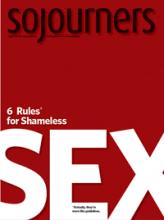During the 2004 presidential election, North Korea was consistently used as a political football between John Kerry and George W. Bush in debates and media appearances, escalating to an angry phone call from Kerry to The New York Times 50 days before Election Day. Kerry accused the Bush administration of having directed focus away from North Korea’s nuclear threat, “taken their eye off the real ball,” and shifted it to Iraq.
A small group of Korean-American students would have pointed out a different focus problem, however: The United States has grossly ignored the humanitarian crisis suffered by North Korean civilians.
During a Korean-American leadership conference at Yale University, several students realized that reports of famine, inhumane work camps, torture, and ideological enslavement in North Korea no longer captured the attention of U.S. leaders, policymakers, or even humanitarian organizations. Who would bring justice to North Korea? The students decided they would. In 2004, they started Liberty in North Korea (LiNK), the first nonprofit organization solely dedicated to ending North Korea’s humanitarian crisis through education, advocacy, and aid to refugees, according to LiNK’s associate director of awareness Justin Wheeler.
Begun with just five students, today the organization has around 100 chapters in the U.S. and more than 10 chapters elsewhere in the world. “The focus at the time was predominantly on policy,” says Wheeler. “Students realized that there wasn’t really anyone who was focusing on the crisis, so these students took it upon themselves to spread the word, and that’s what keeps us alive today.” Through protests, campus rallies, and calls to congressional leaders for passage of a reauthorization act for North Korean refugees, LiNK—composed largely of second-generation Asian Americans—has proved to be an effective student movement, bringing attention to the forgotten millions suffering in North Korea.
Read the Full Article
